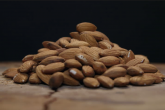
Two out of three people interviewed on the streets of Lagos believe that stress causes high blood pressure. You might think so too. Is there a connection between stress and high blood pressure – a scientifically proven link between the two?
Your heart sends life-giving blood through your blood vessels to every part of your body in the same way a water pump sends water through water pipes to different areas of a house. Your blood pressure is the force with which blood moves through your arteries.
If arteries become narrow or stiff, you need higher than normal pressure to get the blood through. This condition is known as High Blood Pressure or Hypertension.
High blood pressure is dangerous for many reasons:
- It makes the heart work too hard to pump blood to all parts of the body
- The high pressure of the blood flow can damage your blood vessels, heart, kidneys, eyes and other organs in your body causing severe health problems.
- It is the No. 1 cause of stroke and kidney failure in Sub-Saharan Africa.

How does stress affect your body?
Your body produces two hormones, cortisol, and adrenaline when you’re in a stressful situation. These “fight or flight” hormones prepare your body to confront or run away from danger. They make your heart beat faster and narrow your blood vessels, causing a temporary increase in blood pressure.
The thing is, your body can’t distinguish between physical or emotional stress and so releases stress hormones regardless of what causes the stress. When the stressful event is over, your blood pressure and heart rate quickly return to normal.
What is the connection between high blood pressure and stress?
Today’s fast-paced world is full of stress – workplace demands, family life, personal issues, societal, and cultural pressures. You can’t deal with the stress by confrontation or running away, yet your body experiences emotional discomfort and the effects of stress hormones.
If you’re chronically stressed or move from one stressful situation to another as many people do, should you be concerned? Researchers are trying to determine whether all the short-term stress-related blood pressure spikes can cause high blood pressure in the long term.
Although studies so far haven’t shown a direct link between stress and high blood pressure, some indirect links are clear.
The increase in blood pressure during a stressful episode can be quite significant. Even though it is a temporary rise, frequent blood pressure spikes from unrelenting stress can cause damage to your blood vessels, heart, and kidneys.
If you respond to stress by eating unhealthy foods, not exercising, drinking too much alcohol, or smoking, you increase your risk of heart attack, high blood pressure, stroke, and diabetes. In this way, stress can indirectly cause high blood pressure.

Healthy habits that can fight stress and lower blood pressure
If you already have high blood pressure, healthy stress management strategies can lower your blood pressure by up to 10 points. If you don’t have high blood pressure, developing good stress management skills now can prevent it.
- Get plenty of sleep. Your mood, health, energy level and mental sharpness all deteriorate when you don’t get enough sleep.
- Exercise. Exercise is a natural mood-booster and stress-buster. 30 minutes a day, 3 to 5 times a week will yield enormous benefits for your emotional and physical health.
- Learn healthy relaxation techniques. Fifteen to twenty minutes a day of sitting quietly, taking deep breaths and focusing your mind on a peaceful picture helps you relax. Meditation and yoga are also great ways to relax.
- Stay connected to others. Stress can tempt you to disconnect from family and friends, but research shows that strong, healthy relationships are good for emotional and physical health.
- Improve your time-management skills. Efficiently juggling work responsibilities and family demands will lower your stress level.
- Shift your perspective. If possible avoid or eliminate what stresses you. Accept what you can’t change. You can’t control everything, but you can control how you respond emotionally. Focus on the positives, on gratitude and helping others.
- Slow down and take care of yourself. Eat slowly, enjoy your cup of tea, and focus entirely on whatever you’re doing. Go for a walk or take a nap, or listen to your favorite music and dance.


Ernest Kuto
Great stuff! Thanks for the insight.
John
This is very evident that, stress has a great link with high blood pressure. As people are taking more stress in recent times, so they are facing more heart strokes compared to a few years back. So, I think we should be concerned about it from now onwards.